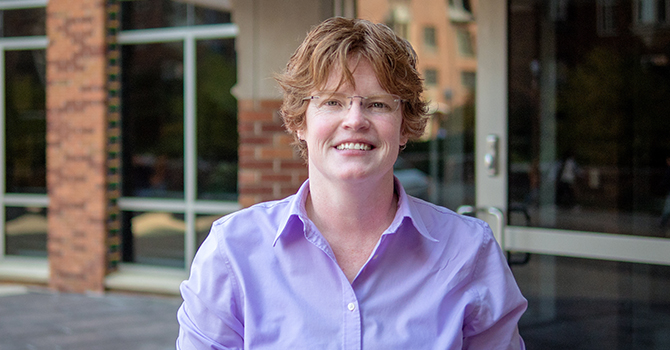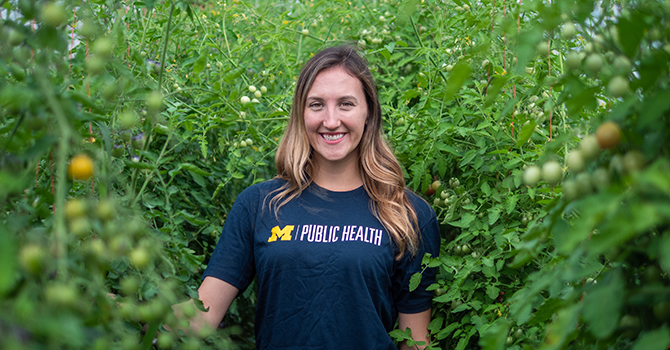General Epidemiology
The General Epidemiology (GE) track emphasizes training in the principles and methods of epidemiology and biostatistics and their application to the study of health and disease in human populations. It prepares students to practice epidemiology in diverse settings and positions of employment. Students are exposed to innovative research projects of faculty that include cancer, social determinants of health, infectious diseases (e.g., tuberculosis, influenza, waterborne infectious disease), chronic diseases (e.g., stroke, cardiovascular disease, metabolic diseases), reproductive health (e.g., birth outcomes, mid-life health among women), aging and age-related diseases (e.g., Alzheimer's disease and dementia), mental health, nutrition and obesity, environmental and occupational exposures, climate change and health, omics (e.g., genome, epigenome, microbiome), mathematical modeling, and health among diverse populations (e.g., Native Americans and Arab Americans). Many students explore career interests through their summer internship in hospitals and healthcare systems, consulting, government at the local, state, and federal levels, and other private sector opportunities.
Curriculum and Program Requirements
The General Epidemiology concentration is offered in 60-credit hours, depending on previous training and degrees. The 60-credit program typically requires four terms (two years) of study.
VIEW COMPETENCIES AND LEARNING OBJECTIVES
Epidemiology Core Requirements
|
Courses |
Credit | Term |
|---|---|---|
| Biostats 522 Biostatistical Analysis for Health-Related Studies | 3 | Winter 1 |
| EPID 600 Introduction to Epidemiology | 3 | Fall 1 |
| EPID 602 Data Analysis for Epid Study Design | 3 | Winter 1 |
| EPID 639 R for Epidemiologic Research | 2 | Fall 1 |
| EPID 667 Professionalism Practice and Communication 1 | 1 | Fall 1 |
| EPID 668 Professionalism Practice and Communication 2 | 1 | Winter 1 |
| EPID 669 Professionalism Practice and Communication 3 | 1 | Fall 2 |
| EPID 670 Integrated Problem Solving in Epidemiology 1 | 3 | Fall 2 |
| EPID 671 Integrated Problem Solving in Epidemiology 2 | 3 | Winter 2 |
| Advanced Methods Elective | 3 | |
| Summer Internship (1 credit for every 84 hours worked) | 2-6 | Summer |
| Elective graduate level courses taken to achieve 60 credits (see handbook) |
In addition to coursework relevant to their chosen concentration, all students in the epidemiology masters program must complete the School of Public Health’s Core Curriculum. Please see concentration pages, linked above, for additional information on concentration-specific prerequisites and curriculum.
| Courses | Credits | Term |
|---|---|---|
| PUBHLTH 500 Investigating Public Health Issues | 6 | Fall 1 |
| PUBHLTH 501 Developing Public Health Solutions | 6 | Winter 1 |
Internship Opportunities
The overall goal of the internship is to provide General Epidemiology students with an opportunity to apply basic epidemiological methods in a public health or health care setting. General Epidemiology internships normally take place during the summer semester after the first year of training and are typically 8-12 weeks long.
Students are responsible for arranging their own internships. Support and resources are provided through the Department (internship coordinator, track leaders, faculty members) and the Michigan Public Health Career Development Office. EPID 667 and EPID 668 (Professionalism Practice and Communication) will offer strategies and instruction on how to locate an internship.
There are various funding opportunities for internships GE students can seek, such as:
- Grants/scholarships from the School of Public Health
- Faculty research grants
- Public Health agencies
- Research grants from faculty at other units on campus (e.g. medical school) or other institutions
- Support from private companies (e.g. pharmaceutical companies).
If you are unable to secure sufficient funding for your internship from these other sources, you may apply to the Department of Epidemiology for financial support.
Contact Us
For more information about the admissions process, email our Epidemiology Admissions team at [email protected] or schedule an appointment to talk with an Epidemiology Admissions Coordinator.
Ready to Apply?
Learn more about our application requirements and deadlines and start your application today. If you’re not ready to apply yet, but would like to receive more information about Michigan Public Health and the program(s) you’re interested in, join our prospective student interest list.






